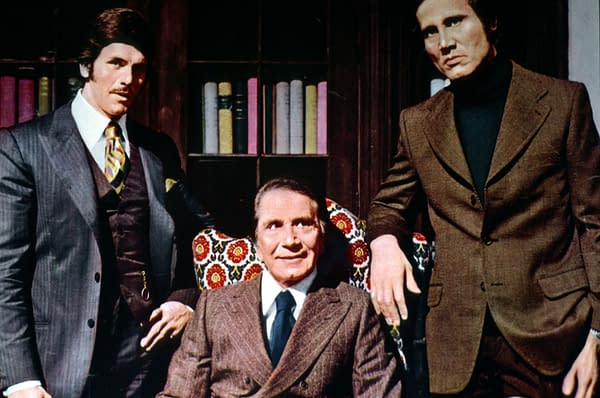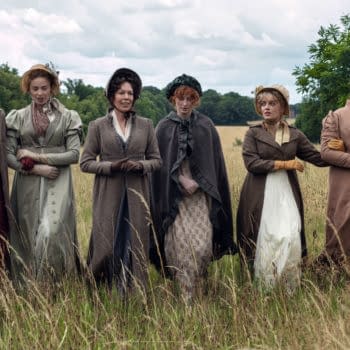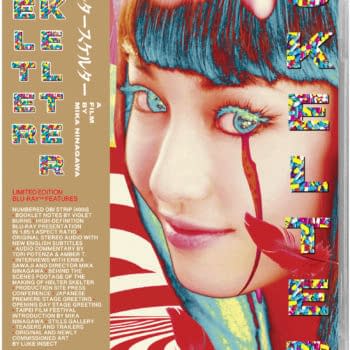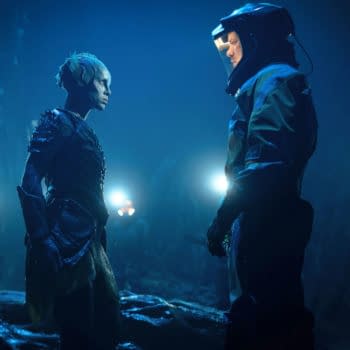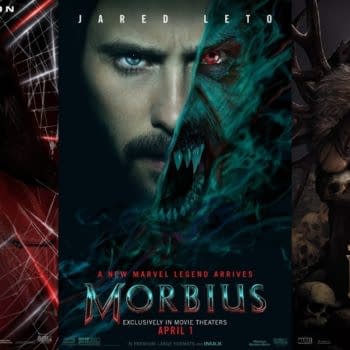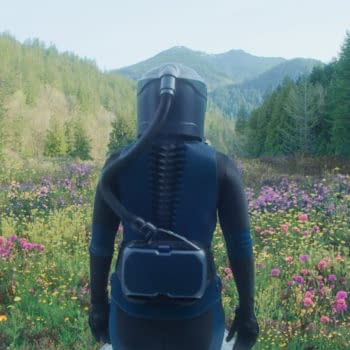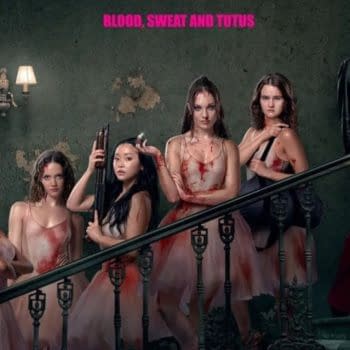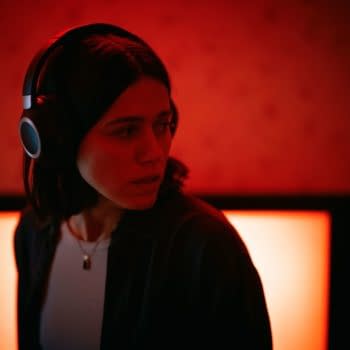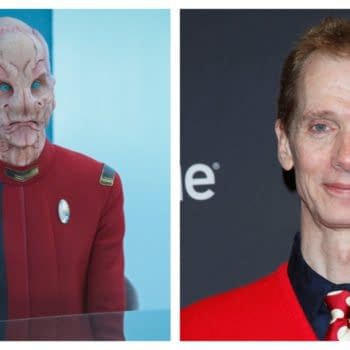Posted in: Movies | Tagged: A Fistful of Dollars, and The Italian Connection, Caliber 9, crime thrillers, Fernando Di Leo, Metrograph theatre, movies, pulp fiction, quentin tarantino, retrospective, sergio leone, the boss
Fernando Di Leo, Who Inspired Tarantino, Gets Retrospective Screenings
Fernando Di Leo: Pulp Maestro is a retrospective of the late Italian director who inspired Quentin Tarantino, now at the Metrograph in NYC
Article Summary
- NYC's Metrograph honors Fernando Di Leo, influential Italian filmmaker, with "Pulp Maestro" retrospective screenings.
- Quentin Tarantino credits Di Leo's films, especially "Mister Scarface," as key inspirations for his filmmaking career.
- Featured are new Kino Lorber restorations of Di Leo’s Milieu Trilogy: "The Boss," "Caliber 9," and "The Italian Connection."
- Also showcased: "A Fistful of Dollars," where Di Leo was an uncredited writer, and Tarantino's "Pulp Fiction."
Fernando Di Leo: Pulp Maestro – Retrospective List of Films
THE BOSS
Dir. Fernando Di Leo, 1973, 109 min, 35mm
From a bravura opening in which a gang of mafiosi, hunkering down to enjoy a porno flick, are blown to smithereens by a grenade launcher-wielding assassin planted in the projection booth, Di Leo's canonical poliziottesco doesn't skimp on the inspired brutality, much of it committed by Henry Silva, the black-eyed mob enforcer who sparks off a crime family war for boss Richard Conte. Kept moving at a brisk clip by Luis Enriquez Bacalov's driving piano score, the last entry of Di Leo's Milieu Trilogy is a bliss-out for fans of lean, mean Eurocrime thrillers, chockablock with crooked crops, nymphomaniac hostages, and more double- and triple-crosses than you'll find in a book of sailor's knots.
New 4K restoration from the original camera negatives.
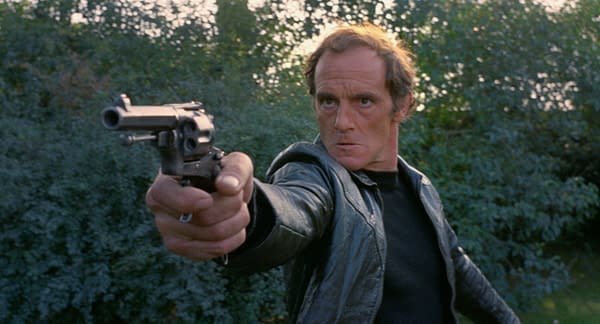
CALIBER 9
Dir. Fernando Di Leo, 1972, 102 min, DCP
Back on the streets after a stint in the slammer, laconic gangster Ugo (The Conformist's Gastone Moschin) is targeted for harassment by Rocco (an explosive Mario Adorf), a big shot in a Milanese gang who's convinced Ugo knows the whereabouts of a missing chunk of lira. Inspired by the short stories of crime fiction writer Giorgio Scerbanenco and hailed as the greatest Italian noir by no less a personage than Quentin Tarantino, the first chapter of Di Leo's Milieu Trilogy gets maximum pungency from location shooting in Milan's grottier precincts, its go-for-broke action set-pieces accompanied by the pulsing music of composer Luis Enriquez Bacalov and cult Neapolitan prog act Osanna.
The restoration of Caliber 9 was carried out in 2022 by the Centro Sperimentale di Cinematografia – Cineteca Nazionale from the negatives made available by Minerva Pictures. To reconstruct the version desired by the director, the title cards were reintegrated, recovered from a copy conserved in the archives of the Cineteca Nazionale.
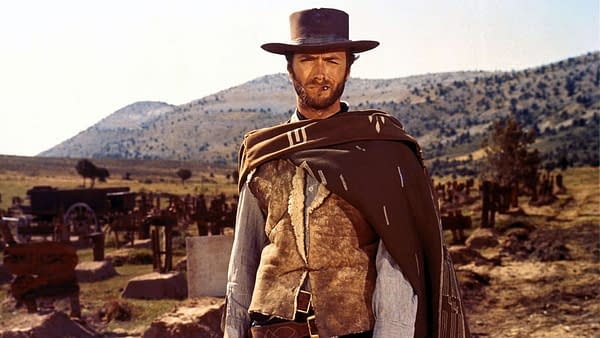
A FISTFUL OF DOLLARS
Dir. Sergio Leone, 1964, 99 min, 4K DCP
With this blackly comic, cynical, dust-choked movie, Leone and Di Leo—one of the film's three uncredited writers—revolutionized the quintessentially American Western genre from his native Italy, established "Man with No Name" star Clint Eastwood as a taciturn, sculptural screen icon, and launched a thousand knockoff spaghetti Westerns. Inspired by Dashiell Hammett's hard-boiled novel Red Harvest, Leone's pitiless, operatic work has Eastwood arriving in the crime-ridden 'burg of San Miguel, where he sets out to get rich setting two feuding gangs at each other's throats. A work of bleak, brutal beauty, and a stern reminder to never, ever, under any circumstances, talk shit about Clint Eastwood's mule.
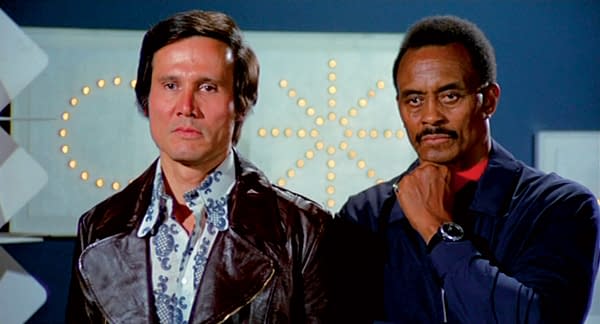
THE ITALIAN CONNECTION
Dir. Fernando Di Leo, 1972, 95 min, DCP
Small-time Milan pimp Luca Canali (Mario Adorf) has to think fast when, accused of taking off with a shipment of heroin belonging to the mob, he finds himself in the crosshairs of two New York hitmen (Henry Silva and Woody Strode, their characters admitted inspirations for the Travolta-Jackson pairing in Pulp Fiction). Hunted and persecuted until he finally turns on his enemies with the ferocity of a cornered animal, Adorf—who did his own stuntwork in the film's jaw-dropping car chase scene—gives an unforgettably frantic and fiercely physical performance in the second entry of Di Leo's Milieu Trilogy, drawn from the work of crime writer Giorgio Scerbanenco.
New 4K restoration from the original camera negatives.
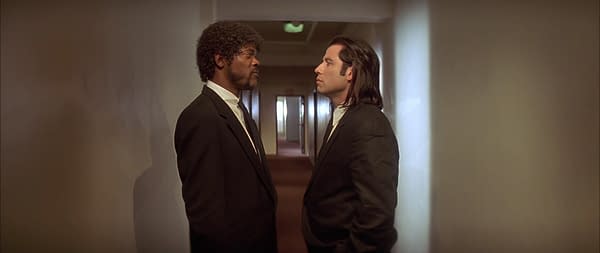
PULP FICTION
Dir. Quentin Tarantino, 1994, 154 min, 35mm
There are indie sleeper hits, and then there's Pulp Fiction, Tarantino's audaciously structured, deliciously hep, endlessly quotable Los Angeles-set crime picture featuring the criss-crossing stories of two philosophical hitmen (John Travolta and Samuel L. Jackson, their roles inspired by their counterparts in Di Leo's Milieu Trilogy), their boss and his wife (Ving Rhames and Uma Thurman), a cool-as-ice fixer (Harvey Keitel), and two shaky stick-up artists (Tim Roth and Amanda Plummer). Parodied, imitated, reviled and beloved, by any definition it's one of the flashpoint films of its decade.
Fernando Di Leo: Pulp Maestro is on at the Metrograph from September 13th to October 6th.


